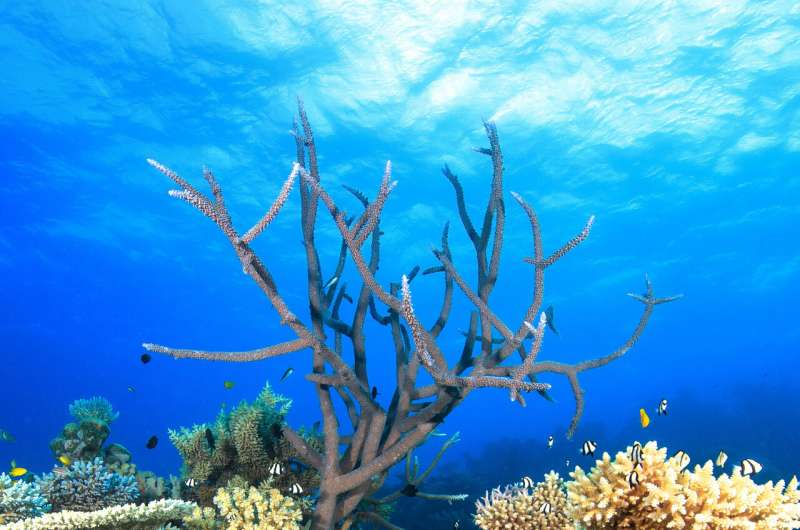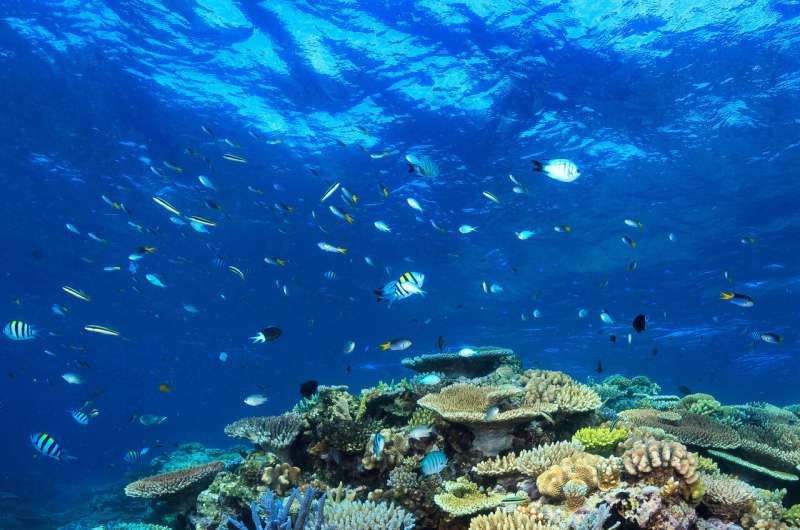No silver bullet for helping the Great Barrier Reef

Recent flooding and the mass outflows of dirty water onto the Great Barrier Reef are raising concerns about their impact on reef health. Across much of coastal Queensland, coastal rivers dump millions of litres of brown, polluted water out onto the Great Barrier Reef, but until now the relative effects of these annual inputs on reef corals and associated organisms have been difficult to understand.
Using a combination of advanced satellite imaging and over 20 years of coral monitoring across the Reef, a team of researchers from Dalhousie University, ARC Centre of Excellence for Coral Reef Studies at James Cook University (Coral CoE), the University of Adelaide and Lancaster University in the UK has found that chronic exposure to poor water quality is limiting the recovery rates of corals across wide swaths of the Great Barrier Reef.
"What we have found is that the Great Barrier Reef is an ecosystem dominated by runoff pollution, which has greatly reduced the resilience of corals to multiple disturbances, particularly among inshore areas," said lead author Dr. Aaron MacNeil of Dalhousie University.
"These effects far outweigh other chronic disturbances, such as fishing, and exacerbate the damage done by crown-of-thorns starfish and coral disease. Perhaps most critically, poor water quality reduced the rates at which coral cover recovers after disturbances by up to 25 percent. This shows that, by improving water quality, the rates of reef recovery can be enhanced."
Yet the effects of water quality only go so far.

Using a series of scenarios modelling future changes in climate and the likelihood of coral bleaching, the team found that no level of water quality improvement was able to maintain current levels of coral cover among the most scenic and valuable outer-shelf reefs that sustain much of the reef tourism industry.
Dr. Camille Mellin of the University of Adelaide noted that: "Coral reefs, including the Great Barrier Reef, are subject to an increasing frequency of major coral die off events associated with climate change driven by coral bleaching. With these increasingly common disturbances becoming the new normal, the rate of coral recovery between disturbances has become incredibly important.
Prof. Nick Graham of Lancaster University Environment Centre emphasised: "Although improved water quality leading to improved recovery rates of inshore reefs is encouraging, our analysis demonstrates the limits of what reducing sediments and nutrients in river runoff can do to improve the state of the outer Great Barrier Reef. We found that no level of water quality improvement will be able to buffer coral losses among the clear water reefs on the outer shelf, which are the very reefs that tourists in Australia want to see.
"Clearly reducing river runoff can have beneficial effects on a wide range of reef corals and needs to continue. But for large areas of the reef that are unimpacted by water quality, we must reduce carbon emissions to slow down climate change. Without such action, the most striking and iconic parts of the reef will rapidly decline and become unrecognisable."
"What these results emphasise is that there is no silver bullet for addressing the threats facing the Great Barrier Reef," said Dr. MacNeil.
Water quality mediates resilience Great Barrier Reef is published in Nature Ecology & Evolution.
More information: Water quality mediates resilience on the Great Barrier Reef, DOI: 10.1038/s41559-019-0832-3 , www.nature.com/articles/s41559-019-0832-3
Journal information: Nature Ecology & Evolution
Provided by Lancaster University




















